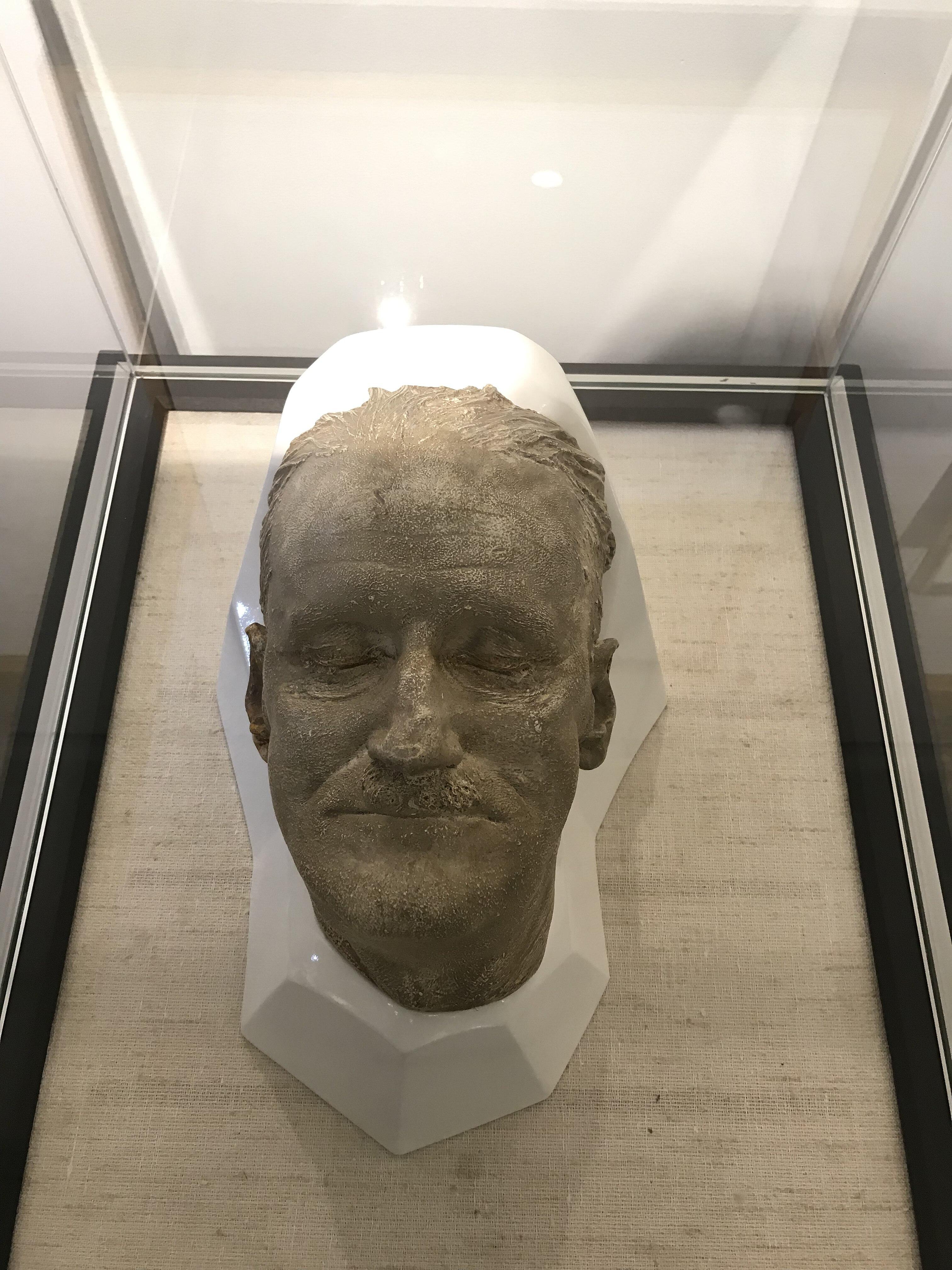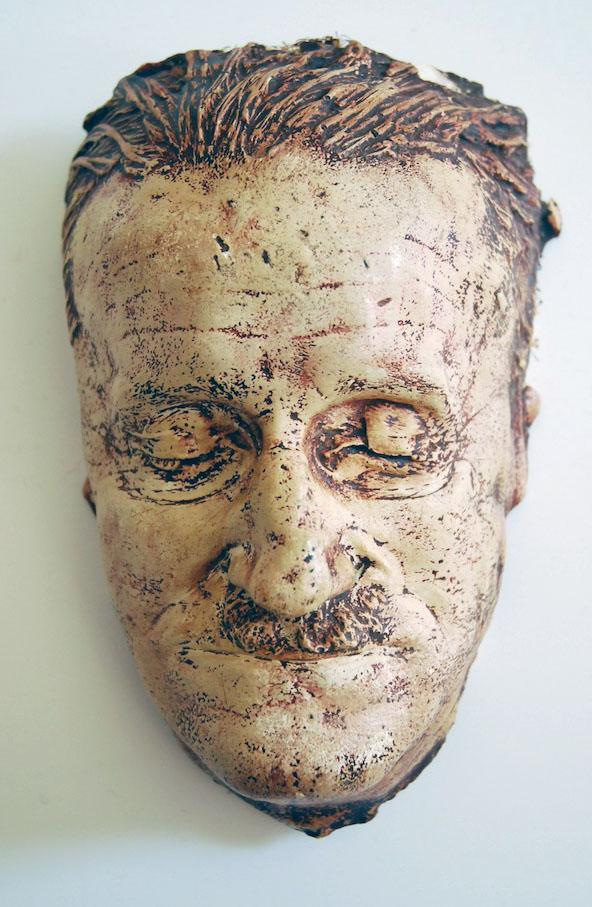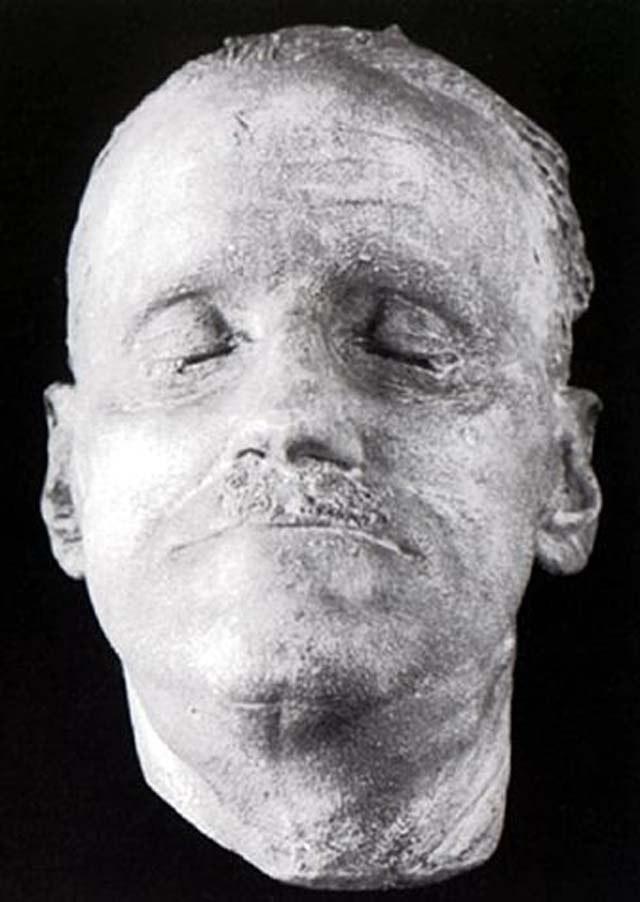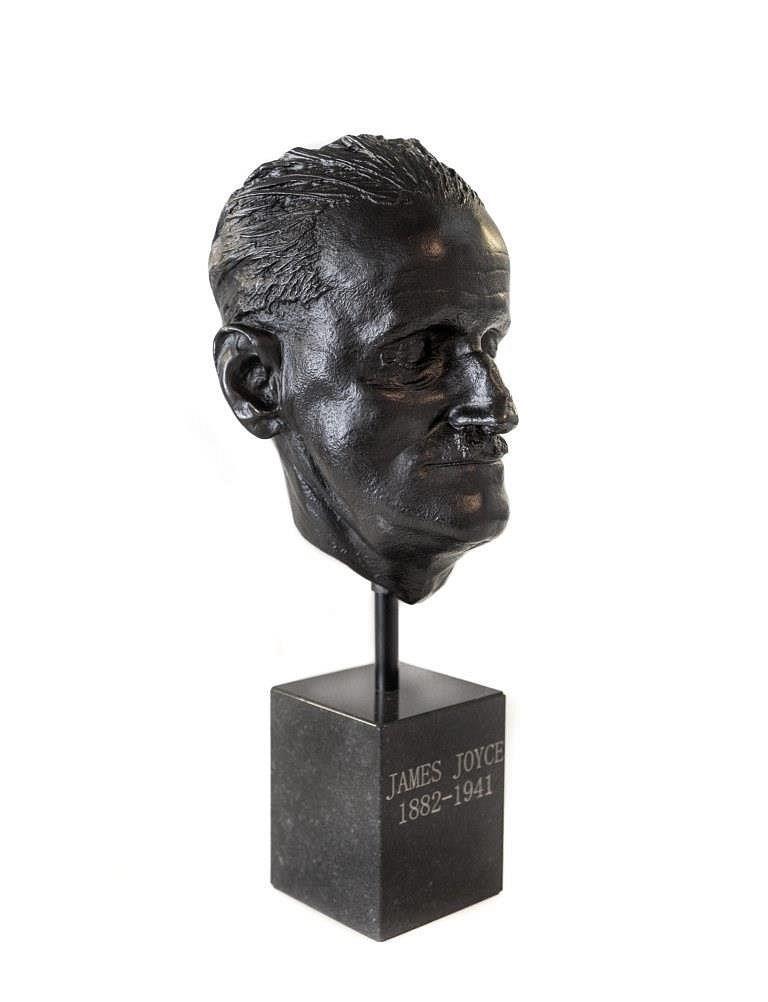Exploring the Literary Legacy: Joyce’s Death Mask and Its Intriguing Backstory
James Joyce, one of literature’s most formidable figures, left behind not just a body of work that challenged the norms of narrative and language, but also an intriguing relic: his death mask. This engaging artifact, made shortly after Joyce’s passing in 1941, captures the essence of the writer, immortalizing his features in a moment frozen in time. For visitors at the Little museum of Dublin, this mask serves as a poignant reminder of how deeply Joyce immersed himself not only in the written word but also in his own life and demise. Displayed with care, the mask prompts a range of reactions, from reverence for the literary genius to contemplation of the weight of mortality intertwined with creation.
The backstory of Joyce’s death mask deepens the intrigue surrounding it. Crafted from plaster, it was produced by his close friend and sculptor, Giuseppe G. Pagliarini, who sought to preserve the visage of a man who had reshaped the landscape of modern literature. The importance lies not only in Joyce’s iconic works, such as “Ulysses” and “A Portrait of the Artist as a Young Man,” but also in the personal relationship he shared with Pagliarini, which illustrates how art and friendship can coexist even amidst tragedy. Furthermore, Joyce’s death mask has become emblematic of the broader narrative of Dublin’s literary heritage, offering visitors a tangible connection to a past that continues to influence writers and readers alike, creating a bridge between Joyce’s immortal words and the generations that follow. Visitors often find themselves pondering the depths of creativity and sacrifice while standing before this unique artifact, making it one of the museum’s most cherished pieces.

Rock and Roll Artifacts: Bono’s Sunglasses and Their Impact on Dublin’s Music Culture
Among the countless treasures housed in Dublin’s Little museum, Bono’s iconic sunglasses stand out not just as a personal artifact of the U2 frontman but as a symbol of the city’s vibrant music culture. These shades, characterized by their sleek design and unmistakable cool factor, have become synonymous with both Bono and the ethos of rock and roll that permeates Dublin. The sunglasses are more than mere eyewear; they represent a cultural statement that encapsulates the spirit of a generation eager to challenge norms and embrace innovation. Visitors to the museum are not just spectators; they are invited to reflect on how Bono’s unique style has influenced countless Dublin musicians and artists, creating a lasting legacy in the world of music.
Examining bono’s sunglasses within the broader context of Dublin’s musical heritage, one can trace the ripple effects of his influence on the city’s artistic landscape. The allure of these shades has inspired a new wave of artists, who view them as a powerful emblem of self-expression and rebellion. Today, it’s not uncommon to see young musicians in Dublin sporting similar eyewear, signaling their commitment to the rock and roll lifestyle that Bono embodies.the exhibition also sparks conversations about how individual artifacts can shape cultural movements, reminding us that objects imbued with personal significance often transcend their physical presence to become enduring symbols of change. In this way, Bono’s sunglasses hold a mirror to Dublin’s evolving music scene, reflecting both its storied past and its dynamic future.

Curiosities of Daily life: How the little Museum captures the Essence of Dublin’s Past
In the heart of Dublin, the Little Museum acts as a treasure trove, showcasing the nuances of life in this vibrant city. Here, one can encounter an array of artifacts that tell tales from Ireland’s literary giants to its contemporary icons. Among the standout pieces is James Joyce’s death mask, a truly haunting artifact that connects visitors to one of the city’s most revered authors.The museum is also home to Bono’s sunglasses, encapsulating Dublin’s modern musical spirit and its enduring cultural legacy.
Wandering through the intimate spaces of the museum, you’ll discover other remarkable exhibits that span decades and themes.From vintage advertisements that humorously reflect societal changes to historic maps that chart Dublin’s conversion, every corner invites exploration. Interactive displays and engaging narratives allow for a personal connection with Dublin’s rich history, revealing how the echoes of the past continue to resonate in the everyday lives of its people. The little Museum is not just a collection of curiosities; it serves as a vibrant testament to Dublin’s evolving identity.

Hidden Gems and Must-See Exhibits: A Visitor’s Guide to the Little Museum Experience
Exploring the Little Museum of Dublin is like embarking on an unexpected treasure hunt through the city’s rich cultural tapestry.Nestled in the heart of Dublin, this charming establishment boasts an eclectic collection that captures the essence of the city’s history and its influential figures. among the museum’s most fascinating exhibits is James Joyce’s death mask, an eerie yet compelling artifact that links visitors to one of literature’s greatest minds. Additionally, the museum showcases Bono’s sunglasses, a symbol of Ireland’s rock ‘n’ roll heritage, providing a glimpse into the personal lives of its iconic residents. Each piece tells a story, making them not just items on display, but gateways to understanding Dublin’s vibrant past.
beyond these standout exhibits, the Little Museum also features hidden gems that often go unnoticed by casual visitors. For those willing to delve a little deeper, the collection includes old Irish postcards depicting the changing landscape of Dublin, and vintage photographs that capture everyday life in the city through the decades. Moreover, the museum hosts an assortment of artifacts from over 100 years of history, from the suffragette movement to the evolution of Irish music and dance. This remarkable variety not only enriches the visitor experience but also highlights the museum’s commitment to celebrating the diverse narratives that make up Dublin’s identity.
